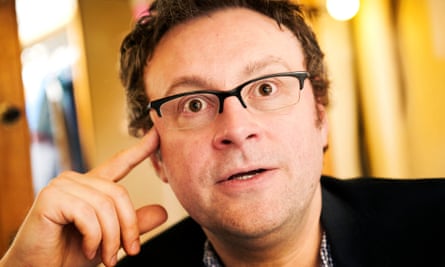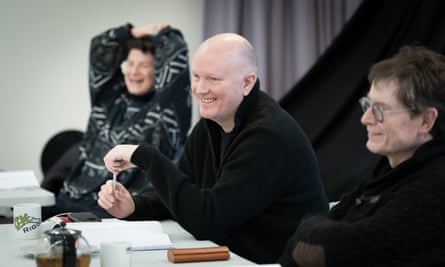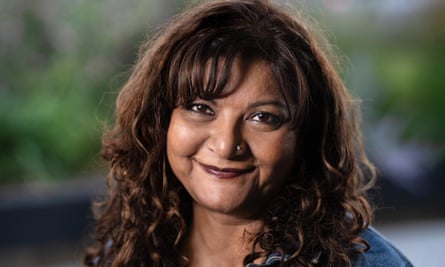
Host Lothar brings the BBC production “We Can Remember it For You Wholesale“, Jeff and Jack join in with more grand Amigo fun!

Host Lothar brings the BBC production “We Can Remember it For You Wholesale“, Jeff and Jack join in with more grand Amigo fun!
The Internet is a buzz with the BBC’s desire to drop audio dramas. Looks like they heard about Mutual’s Mutual Stage concept. 90 minute audio dramas, public domain classics or originals. Sharpen those pens and get started writing. It’s Audio Drama time!

From Katie Hims and The Guardian:
Hundreds of hours of original plays have been cut from the corporation’s programming in recent years. If the trend continues, a valuable training ground for writers will be lost
he BBC’s output of new original and adapted drama has more than halved since 2018 – a cut that amounts to hundreds of lost hours, although precise figures are hard to come by. At a time when interest in audio content has never been higher – the number of existing podcasts is somewhere between 3m and 4m; a hit series is downloaded millions of times a month (The Rest Is History: 29m!) – the BBC’s audio drama output is at an all-time low. As a career radio dramatist, whenever I am gloomily dwelling on this fact, the football phrase “snatching defeat from the jaws of victory” comes to mind. Because in this new era of audio storytelling and podcast ubiquity, the BBC’s incredible track record in radio drama should have proved a fabulous advantage. Instead, we are facing the possibility of extinction.
It all began with the 60-minute Friday Play (decommissioned in 2010). This was followed by The Wire (Radio 3) in 2014. The 15-minute drama in Woman’s Hour was lost in 2021. Radio 4’s Friday afternoon play became 30 minutes rather than 45 soon after. Its 60-minute Saturday play – once a weekly event – has been steadily whittled down to 12 new original dramas a year. The latest cut – Radio 3’s Sunday night drama, the UK’s last remaining 90-minute slot – has generated some press, and a petition from the likes of Judi Dench and Ian McKellan, but it is only the latest in a series of losses. BBC radio drama production staff have largely been made redundant and only a skeletal team remain in a handful of BBC radio drama departments. This amounts to an exodus of skill and talent. Many of these makers go on to create work outside the corporation, and indeed for it, but a freelance producer will struggle to make a living solely in drama.

Why does this matter? It matters because BBC radio has historically played a unique role in the development of drama in this country. Radio drama is a unique art form that reaches millions of listeners and offers a tremendous range and variety of stories from the epic series to the small and local. These cuts have terrible implications for actors and writers, for diversity, inclusion and access… Should we really just shrug our shoulders at the prospect of it all disappearing?Quick Guide
My first radio play was recorded in Manchester in 1997. The Earthquake Girl was the story of an agoraphobic librarian played by Saskia Reeves. Jean Alexander and Burt Caesar also starred. I had watched Alexander play Hilda Ogden on Coronation Street with my nan for years. So it was a huge thrill to hear her say the words I’d written and she was fantastic as an intransigent woman who refused to stop crunching crisps under the No Eating sign in the library. I cannot imagine where else or even how else I would have been able to tell that story – or who might have encouraged me to tell it. The play went on to win the Richard Imison award and I have been writing radio drama ever since. I have been incredibly lucky.
But the small single play that allows a writer to be themselves or rather – crucially – to become themselves is increasingly rare. A writer’s loss is an audience’s loss too: look at what some first-time or early-stage writers of these small single plays have gone on to do. Lee Hall’s first radio play, I Luv You Jimmy Spud, was broadcast in 1995. He went on to write the screenplay for Billy Elliot soon after; his latest hit is the libretto for Royal Opera’s new adaptation of Festen. A 27-year-old Roy Williams (Sucker Punch, Death of England) had his play Homeboys broadcast in the BBC’s First Bite Young Writers festival in 1995. The first play by Tanika Gupta (Lions and Tigers, A Tupperware of Ashes), Asha, was broadcast on radio in 1991. Radio play regular Peter Straughan is up for an Oscar next month for best adapted screenplay for Conclave. James Graham, Rebecca Lenkiewicz, Nick Payne and debbie tucker green all had early successes on radio. I could list many more.
Historically, radio has always been a more accessible route into writing drama than film, television or theatre, but it is not, however, simply a stepping stone to other more high- profile work: it is a valuable art form in its own right. Alistair Cooke’s famous assertion that “the pictures are better” on radio was a reference to sport, but he could just as easily have been talking about drama. Radio is such a limber medium. Just as you can listen anywhere, you can go anywhere in the storytelling. Backwards or forwards in time. You can write ghost stories and sci-fi, jump from Lewisham to China and back again. There is no budgetary impact if you decide to set the whole thing in space.

Radio is also the most collaborative of mediums, because the collaboration extends to its audience. You can be getting on with something else while you listen, but then have to stop so you don’t miss a word. You might find yourself rooted to your car seat at the end of a journey, just to hear how something ends. Or have to stop what you’re doing just so you can cry. Lee Hall’s radio play Spoonface Steinberg famously had lorry drivers pulling over in laybys in order to weep.
The intimacy of the medium seems to foster this very human, often very emotional, connection between the work and the listener. The story goes straight into your mind. Now that we can listen anywhere, any time, our external world can become part of this collaboration too. Listening to a ghost story while walking on the beach one late afternoon, I didn’t notice how much darker it had become or the fact that I was completely alone. The story finished and I was completely spooked. As a story gets inside you, you also get inside the story.
Mike Bartlett has had tremendous success on stage (Cock; Earthquakes in London; Unicorn, starring Stephen Mangan and Nicola Walker, currently in the West End) and in TV (Doctor Foster), but his first commission was a radio play – Not Talking, with June Whitfield and Richard Briers – which he wrote when he was 25. When I ask him what makes the form unique for him as a writer, he tells me that radio drama is “the most human of mediums, in the way it is written, produced and experienced”. He also describes the difficulty of telling certain stories on television when there is now such pressure, in the age of streaming behemoths and international co-productions, to create global appeal. “In radio you can be more specific, you can reflect the local – you can write about a small town, about scrambled eggs, you can reflect the world that people live in. It can be hard to sell the story of a local town if you have to seek co-production from another country.” But we know that the most specific stories can often prove the most universal in terms of appeal. If done well.

People say to me all the time – well, what about writing for other audio content providers? But there isn’t the infrastructure or the economic model to make this a viable full-time or even part-time alternative. Despite everything, the BBC is still the largest provider of audio drama in the world, but if the cuts continue at such pace there will soon be nothing left. And while it is not, of course, the BBC’s job to train writers, it does have a public service remit – and if the BBC cannot fulfil this role, then who will? BBC audio drama has a key role to play in the ecosystem of drama production in this country. Cutting it back to almost nothing is like cutting down a small rainforest. The effects are being felt now but they will be felt even more urgently in the future. And the loss will be everyone’s.
Katie Hims is an award-winning radio playwright
We often forget the absolute magic of the audio story. If we go back to our childhood, we can remember being read to- even if we couldn’t see the page. Our imagination fills in the worlds that are drummed up through sound in a way that the visual medium could never accomplish. If you don’t believe me, try this experiment some time. Turn on a television show on TV and make sure you can’t see the picture. You’ll be able to follow along in most cases to the story. Then try the reverse. Watch the show without sound, and you may get the broad strokes, but more likely you’ll miss out on what is actually happening.
Still don’t believe me? Ask David Tennant and Kenneth Branagh
“…it can also be far more adventurous than theatre or film. There’s no need to obey the unities of time and space; we can go anywhere, any time in our imaginations without leaving the room.”- Kate
Chisholm
Ms. Chisholm certainly has hit squarely upon the nail with this comment. Audio Drama/Radio Drama is such a wide and varied form of entertainment. It can have the grandiose spectacle of a blockbuster film. It can be as as poetically descriptive as a novel. It can be as accessible as a stage play, and it is one thing more than all of those- it is the most intimate of mediums. Read the rest of Kate Chisholm’s article in The Spectator– Why British radio plays can’t compete with those from the Continent (hint: they totally can!)
![]()
 The BBC is taking a step back to make a splash in the audio drama world. Check out this article in The Verge about new interactive audio dramas:
The BBC is taking a step back to make a splash in the audio drama world. Check out this article in The Verge about new interactive audio dramas:
The BBC is known for producing radio plays, but the format is about to get a high-tech twist: a new experiment by the broadcasting company will turn traditional audio dramas into interactive stories.
One new radio play — a comedy / science fiction story titled The Inspection Chamber — will work similarly to a choose your own adventure book or game. Listeners will hear a chunk of the story, and then be presented with a choice of what should happen next. It was developed by the BBC’s R&D division, which worked with an audio company called Rosina Sound. The piece is said to take inspiration from games like The Stanley Parable and Papa Sangre, especially in terms of exploring new ways to offer interactive fiction. You can listen to some of it now over at the BBC’s R&D blog.
The BBC says it has developed a “story engine” that makes it easy to release the same story on multiple platforms, so The Inspection Chamber will be available on both Amazon Alexa and Google Home devices when it releases later this year. The company is also exploring the possibility of expanding to Cortana smart speakers or Apple’s HomePod when those devices are released.
Jeff Billard, Lothar Tuppan, and Jack Ward look at more old time radio shows beginning season 2 with “Danger” or “A Comedy of Danger” from the Columbia Radio Workshop.
 Whether you’re a fan of Moonlight Audio or Audioflix one thing is certain, audio plays and stories are on the rise. In this article from The Conversation, BBC has declared its intention to target the world as the new “netflix” of audio. The question is, who will eventually reign as king?
Whether you’re a fan of Moonlight Audio or Audioflix one thing is certain, audio plays and stories are on the rise. In this article from The Conversation, BBC has declared its intention to target the world as the new “netflix” of audio. The question is, who will eventually reign as king?
BBC Radio has declared its intention of targeting an international audience with a “Netflix of the spoken word” with the intention of finding ways to better exploit it’s vast archive of professionally produced audio.
 We’ve mentioned before that the BBC long running audio drama series The Archers have been helping a charity highlight the issues of domestic abuse. As this story line winds down, Helen Titchener, is on trial for the murder of her husband. The Slough Express writes:
We’ve mentioned before that the BBC long running audio drama series The Archers have been helping a charity highlight the issues of domestic abuse. As this story line winds down, Helen Titchener, is on trial for the murder of her husband. The Slough Express writes:
A domestic abuse charity from Slough is hoping a hit radio show’s harrowing storyline will help bring the plight of domestic abuse victims ‘to the forefront of everyone’s minds’.
The tale of Helen Titchener, from BBC Radio 4’s The Archers, came to a gripping conclusion on Sunday.
She was accused of attempting to murder her abusive husband Rob, who had subjected her to months of physical and mental abuse.
During a special hour-long episode, a jury found her not guilty.
After the show’s conclusion, Becky Spiller, head of services at The Dash Charity, told the Express that the storyline helped address some misconceptions people have on domestic abuse victims.
Becky said: “In the case of Helen and Rob they’re quite a well to do middle class couple.
“People sometimes have a preconception in their heads that only a certain class of people will be victims of domestic violence.
“But it can be very difficult to leave an abusive relationship, especially when children are involved, and this storyline has really highlighted that.
“The issue needs to be talked about more and brought to the forefront of everyone’s minds.”
 Caroline Crampton waxes love in this New Statesman article about a classic 1970’s posh detective Peter Wimsey. Check out how her housemate is intrigued:
Caroline Crampton waxes love in this New Statesman article about a classic 1970’s posh detective Peter Wimsey. Check out how her housemate is intrigued:
Walking into the kitchen on a Monday evening to find, as ever, the radio blaring, my housemate asked a question that had clearly been plaguing him for some time. “Who is this Peter Wimsey?” he demanded. “You’re always listening to his strange posh voice.”
Strictly, the answer is that Ian Carmichael is Peter Wimsey – or at least he was in the seminal BBC radio and television adaptations of Dorothy L Sayers golden age detective novels made in the Seventies. These are still irregularly repeated across the BBC radio network, and it always feels like I’ve solved a mystery myself when I finally catch an announcer saying “. . . and now, a spot of sleuthing with Lord Peter” and hear Carmichael’s plummy RADA tones ringing out. Somehow, the Hull-born Carmichael inhabits the character of Wimsey – the Eton and Oxford educated younger son of a Duke who turns to mystery-solving after traumatic experiences in the First World War – better than any of the others who tried over the course of the twentieth century.
Read more Caroline’s love for this British classic and look for it too on BBC too!
© 2026 The Sonic Society
Theme by Anders Noren — Up ↑